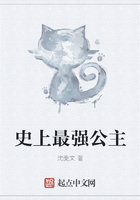A GLITTERING NIGHT FLOWER: THE USE OF A NAME
Drouet did not call that evening. After receiving the letter, he had laid aside all thought of Carrie for the time being and was floating around having what he considered a gay time. On this particular evening he dined at " Rector's," a restaurant of some local fame, which occupied a basement at Clark and Monroe Streets. Thereafter he visited the resort of Fitzgerald and Moy's in Adams Street, opposite the imposing Federal Building. There he leaned over the splendid bar and swallowed a glass of plain whiskey and purchased a couple of cigars, one of which he lighted. This to him represented in part high life-a fair sample of what the whole must be.
Drouet was not a drinker in excess. He was not a moneyed man. He only craved the best, as his mind conceived it, and such doings seemed to him a part of the best. Rector's, with its polished marble walls and floor, its profusion of lights, its show of china and silverware, and, above all, its reputation as a resort for actors and professional men, seemed to him the proper place for a successful man to go. He loved fine clothes, good eating, and particularly the company and acquaintanceship of successful men. When dining, it was source of keen satisfaction to him to know that Joseph Jefferson was wont to come to this same place, r that Henry E. Dixie, a well known performer of the day, was then only a few tables off. At Rector's he could always obtain this satisfaction for there one could encounter politicians, brokers, actors, some rich young "rounders" of the town, all eating and drinking amid a buzz of popular commonplace conversation.
"That's So-and so over there," was a common remark of these gentlemen among themselves, particularly among those who had not yet reached, but hoped to do so, the dazzling height which money to dine here lavishly represented.
"You don't say so," would be the reply.
"Why, yes, didn't you know that? Why, he's manager of the Grand Opera House."
When these things would fall upon Drouet's ears, he would straighten himself a little more stiffly and eat with solid comfort. If he had any vanity, this augmented it, and if he had any ambition, this stirred it. He would be able to flash a roll of greenbacks too some day. As it was, he could eat where they did.
His preference for Fitzgerald and Moy's Adams Street place was another yard off the same cloth. This was really a gorgeous saloon from a Chicago standpoint. Like Rector's, it was also ornamented with a blaze of incandescent lights, held in handsome chandeliers. The floors were of brightly colored tiles, the walls a composition of rich, dark, polished wood, which gave the place a very sumptuous appearance. The long bar was a blaze of lights, polished wood-work, colures and cut glassware, and many fancy bottles. It was a truly swell saloon, with rich screens, fancy wines, and a line of bar goods unsurpassed in the country.
At Rector's Drouet had met Mr. G. W. Hurstwood, manager of Fitgerald and Moy's. He had been pointed out as a very successful and well-known man about town. Hurstwood looked the part, for, besides being slightly under forty, he had a good, stout constitution, an active manner, and solid, substantial air, which was composed in part of his fine clothes, his clean linen, his jewels, and, above all, his own sense of his importance. Drouet immediately conceived a notion of him as being some one worth knowing, and was glad not only to meet him, but to visit the Adams Street bar thereafter whenever he wanted a drink or a cigar.
Hurstwood was an interesting character after his kind. He was shrewd and clever in many little things, and capable of creating a good impression. His managerial position was fairly important-a kind of stewardship which was imposing, but lacks financial control. He had risen by perseverance and industry, through long years of service, from the position of barkeeper in a commonplace saloon to his present altitude. He had a little office in the place, set off in polished cherry and grill-work, where he kept, in a roll-top desk, the rather simple accounts of the place-supplies ordered and needed. The chief executive and financial functions devolved upon the owner Messrs. Fitzgerald and Moy-and upon a cashier who looked after the money taken in.
For the most part he lounged about, dressed in excellent tailored suits of imported goods, a solitaire ring, a fine blue diamond in his tie, a striking vest of some new pattern, and a watch-chain of solid gold, which held a charm of rich design, and a watch of the latest make and engraving. He knew by name, and could greet personally with a " Well, old fellow," hundreds of actors, merchants, politicians, and the general run of successful characters about town, and it was part of his success to do so. He had a finely graduated scale of informality and friendship, which improved from the " How do you do?" addressed to the fifteen-dollar-a-week clerks and office attaches, who, by long frequenting of the place, became aware of his position, to the " Why old man, how are you?" which he addressed to those noted or rich individuals who knew him and were inclined to be friendly. There was a class however, too rich, too famous, or too successful with whom he could not attempt any familiarity of address, and with these he was professionally tactful, assuming a grave and dignified attitude, paying them the deference which would win their good feeling without in the least compromising his own bearing and opinions. There were, in the last place, a few good followers, neither rich nor poor, famous, nor yet remarkably successful, with whom he was friendly on the score of good-fellowship. These were the kind of men with whom he would converse longest and most seriously. He loved to go out and have a good time once in a while to go to the races, the theatres, the sporting entertainments at some of the clubs. He kept a horse and neat trap, had his wife and two children, who were well established in neat house on the North Side near Lincoln Park, and was altogether a very acceptable individual of our great American upper class-the first grade below the luxuriously rich.
Hurstwood liked Douet. The latter's genial nature and dressy appearance pleased him. He knew that Drouet was only a traveling salesman-and not one of many years at that-but the firm of Barlett, Caryoe & Company was large and prosperous house, and Drouet stood well. Hurstwood knew Caryoe quite well, having drunk a glass now and then with him, in company with several others, when tie conversation was general. Drouet had what was a help in his business, a moderate sense of humor, and could tell a good story when the occasion required. He could talk races with Hurstwood, tell interesting incidents concerning himself and his experiences with women, and report the state of trade in the cities which he visited, and so managed to make himself almost invariably agreeable. Tonight he was particularly so, since his report to the company had been favorably commented upon, his new samples had been satisfactorily selected, and his trip marked out for the next six weeks.
"Why, hello, Charlie, old man," said Hurstwood, as Drouet came in that evening about eight o'clock. " How goes it?" The room was crowded.
Drouet shook hands, beaming good nature, and they strolled towards the bar.
"Oh, all right."
"I haven't seen you in six weeks. When did you get in?"
"Friday," said Drouet. "Had a fine trip."
"Glad of it," said Hurstwood, his black eyes lit with a warmth which half displaced the cold make-believe that usually dwelt in them. " What are you going to take?" he added, as the barkeeper, in snowy jacket and tie, leaned toward them from behind the bar.
"Oh, all right."
"I haven't seen you in six weeks. When did you get in?"
"Friday," said Drouet. "Had a fine trip."
"Glad of it," said Hurstwood, his black eyes lit with a warmth which half displaced the cold make-believe that usually dwelt in them. " Where are you going to take?" he added, as the barkeeper, in snowy jacket and tie, leaned toward them from behind the bar.
"Old Pepper," said Drouet.
"A little of the same for me," put in Hurstwood.
"How long are you in town this time? inquired Hurstwood.
"Only until Wednesday. I'm going up to St. Paul."
"George Evans was in here Saturday and said he saw you in Milwaukee last week."
"Yes, I saw George," returned Drouet. "Great old boy, isn't he? We had quite a time there together."
The barkeeper was setting out the glasses and bottle before them, and they now poured out the drought as they talked, Drouet filling his to within a third of full, as was considering proper, and Hurstwood taking the barest suggestion of whiskey and modifying it with seltzer.
"What's become of Caryoe?" remarked Hurstwood "I haven't seen him around here in two weeks."
"Laid up, they say," exclaimed Drouet. "Say, he's a gouty old boy!"
"Made a lot of money in his time, though, hasn't he?"
"Yes, and swift-pacer," laughed Drouet.
"I guess he can't hurt the business very much, though, with the other members all there."
"No, he can't injure that any, I guess."
Hurstwood was standing, his coat open, his thumbs in his pockets, the light on his jewels and rings relieving them with agreeable distinctness. He was the picture of fastidious comfort.
To one not inclined to drink, and gifted with a more serious turn of mind, such a bubbling, chattering, glittering chamber must ever seem an anomaly, a strange commentary on nature and life. Here come the moths, in endless procession, to bask in the light of the flame. Such conversation as one may hear would not warrant a commendation of the scene upon intellectual grounds. It seems plain that schemers would choose more sequestered quarters to arrange their plans, that politicians would not gather here in company to discuss anything save formalities, where the sharp-eared may hear, and it would scarcely be justified on the score of thirst, for the majority of those who frequent these more gorgeous places have no craving for liquor. Nevertheless, the fact that here men gather, there chatter, here love to pass and rub elbows, must be explained upon some grounds. It must be that a strange bundle of passions and vague desires give rise to such a curious social institution or it would not be.
Drouet, for one, was lured as much by his longing for pleasure as by his desire to shine among his betters. The many friends he met here dropped in because they craved, without, perhaps, consciously analyzing it, the company, the glow, the atmosphere which they found. One might take it, after all, as an auger of the better social order, for the things which they satisfied here, though sensory, were not evil. No evil could come out of the contemplation of an expensively decorated chamber. The worst effect of such a thing would be, perhaps, to stir up in the material minded an ambition to arrange their lives upon a similarly splendid basis. In the last analysis, that would scarcely be called the fault of the decorations, but rather of the innate trend of the mind. That such a scene might stir the less expensively dressed to emulate the more expensively dress could scarcely be laid at the door of anything save the false ambition of the minds of those so affected. Remove the element so thoroughly and solely complained of-liquor-and there would not be one to gainsay the qualities of beauty and enthusiasm which would remain. The pleased eye with which our modern restaurants of fashion are looked upon is proof of this assertion.
Yet, here is the fact of the lighted chamber, the dressy greedy company, the small, self-interested palaver, the disorganized, aimless, wandering mental action which it represents-the love of light and show and finery which, to one outside, under the serene light of the eternal stars, and sweeping night winds, what a lamp-flower it must bloom; a strange, glittering night-flower, yielding-yielding, insect- drawing, insect-infested rose of pleasure.
"See that a fellow coming in there?" said Hurstwood, glancing at a gentlemen just entering, arrayed in a high hat and Prince Albert coat, his fat cheeks puffed and red as with good eating.
"No, where?" said Drouet.
"There," said Hurstwood, indicating the direction by a cast of his eye, "the man with the silk hat."
"Oh, yes," said Drouet, now affecting not to see. "Who is he?"
"That's Jules Wallace, the spiritualist."
Drouet followed him with his eyes, much interested.
"Doesn't look much like a man who sees spirits, does he?" said Drouet.
"Oh, I don't know," returned Hurstwood. "He's got the money, all right," and a little twinkle passed over his eyes.
"I don't go much on those things, do you?" asked Drouet.
"Well, you never can tell," said Hurstwood. " There may be something to it. I wouldn't bother about it myself, though. By the way," he added, "are you going anywhere to-night?"
"The Hole in the Ground," said Drouet, mentioning the popular farce of the time.
"Well, you'd better be going. It's half after eight already," and he drew out his watch.
The crowd was already thinning out considerably, some bound for the theatres, some to their clubs, and some to that most fascinating of all the pleasures for the type of man there represented, at least the ladies.
"Yes, I will," said Drouet.
"Come around after the show. I have something I want to show you," said Hurstwood.
"Sure," said Drouet, elated.
"You haven't anything on hand for the night, have you?" added Hurstwood.
"Not a thing."
"Well, come round, then."
"I struck a little peach coming in on the train Friday," remarked Drouet, by way of parting. "By George, that's so, I must go and call on her before I go away."
"Oh, never mind her" Hurstwood remarked.
"Say, she was a little dandy, I tell you," went on Drouet confidentially, and trying to impress his friend.
"Twelve o'clock," said Hurstwood.
"That's right," said Drouet, going out.
Thus was Carrie's name bandied about in the most frivolous and gay of places, and that also when the little toiler was bemoaning her narrow lot, which was almost inseparable from the early stages of this, her unfolding fate.















